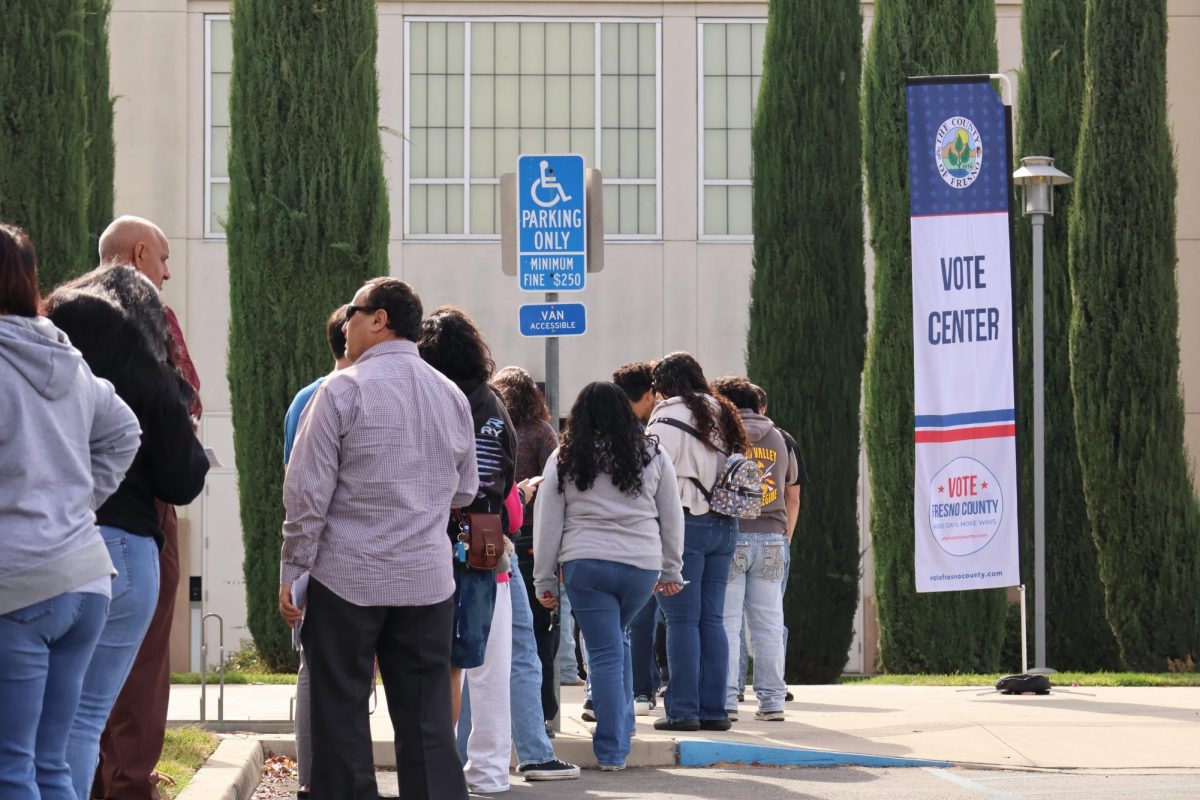Families across the country turned out to voting centers together casting their voices into a sea of others. What happens when an individual doesn’t fill out their own ballot?
The Collegian interviewed Peyton Jones, 39, and Alex Cruz, 23, using pseudonyms and indifferent pronouns for the individuals on the grounds that they are describing potentially illegal activity.
They both have similar tales of family voter participation.
Jones describes their grandparents’ process in detail.
“He’s not filling anything out anymore,” Jones said.
Jones’ grandfather, who has become more cognitively impaired in his later years, had his ballot filled out by his wife. They described feeling a little weary of their grandmother’s conversation on the way to the ballot box.
“She voted for my grandfather,” Jones said. “His mental capacity is very limited right now. So grandma is making all the calls.”
Parental influence in voting is happening as well.
“I wasn’t living at home, so they said ‘we’re just going to vote for you,’” Cruz said.
The 2020 election was the first time Cruz voted in the general election, yet they never touched pen to paper or index to touchscreen. They assured us that they agreed with the choice made by the parents but the question still arises.
Does this count as voter fraud?
The US Department of Justice under Federal Prosecution of Election Fraud classifies four distinct areas: election fraud, patronage crimes, campaign finance crimes and civil rights crimes.
“Election fraud usually involves corruption of one of three processes: the obtaining and marking of ballots, the counting and certification of election results, or the registration of voters,” the Federal Prosecution of Election fraud says.
Although not making it entirely clear, the above mentioned voter dynamics could fall under one of these options. A federal election fact sheet from the United States Attorney District of New Hampshire provides a clearer picture stating that certain activities can provide a “Basis” for federal prosecution.
“Providing false information concerning a voter’s name, address, or period of residence in order to register to vote, or to vote in a federal election,” and “Giving false information for the purpose of establishing eligibility to vote,” according to the Federal election fact sheet.
The California legislature states that anyone who “impersonates or attempts to impersonate a voter at an election” could face up to three years in jail.
A federal SWAT team most likely won’t come barricading through the above mentioned individuals residences. For Cruz, the institution of voting is brand new, but in the case of Jones’ grandfather, intention and clairvoyance begin to fade.
“At what point do you lose your rights,” Jones said.




